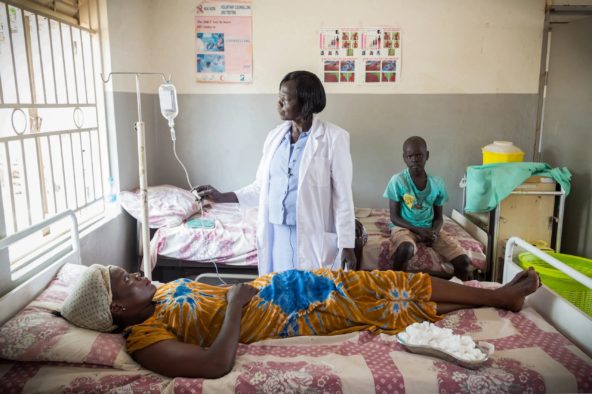Our portfolio analysis found that UK health ODA invested into tackling non-communicable diseases (NCDs) is minimal, and that the Better Health Programme of the Prosperity Fund is the UK Government’s primary programme investing in NCDs. While the Better Health Programme is in its implementation phase, a 2017 ICAI rapid review raised significant concerns in relation to the Prosperity Fund more broadly; ICAI highlighted that the expected speed of implementation of the Fund’s programmes risked compromising delivery, and that the initiative lacked transparency. The UK parliament’s International Development Committee (IDC) has since raised grave concerns about the Fund’s business focus, stating that ‘the heavy emphasis of the Prosperity Fund upon promoting UK trade risks losing the rightful emphasis of the Fund upon the primacy of poverty reduction, and is a step towards the return of tied aid’. Apart from a commitment to promote more equitable health outcomes and integrate a poverty- sensitive approach , the Better Health Programme does not make clear how it will guarantee that public health needs will be prioritised over business interests in its interventions, or how it will ensure people in poverty see no increase in healthcare costs resulting from its activities.
Beyond the Prosperity Fund, the UK also supports research into NCDs and mental health; for example, through the National Institute for Health Research and the Global Challenges Research Fund, including the Tobacco Control Capacity Programme.
Programming to support mental health is almost as limited as support to NCDs to date, but includes psychosocial support within humanitarian interventions; support to UK civil society organisations delivering mental health services (Comic Relief Red Nose Day 2019 – Global Mental Health Matters (£2.1 million)); and a programme scaling up quality mental health services (alongside other interventions), through community-based care (Leave No One Behind in Ghana (£27.4 million)). The UK has been a vocal champion of a greater focus on mental health within the policy and strategic approaches of multilaterals such as the Global Fund.
Despite the uncertainty of development priorities for the new FCDO, the merger creates a considerable opportunity to renew interest in the prevention and management of NCDs.


